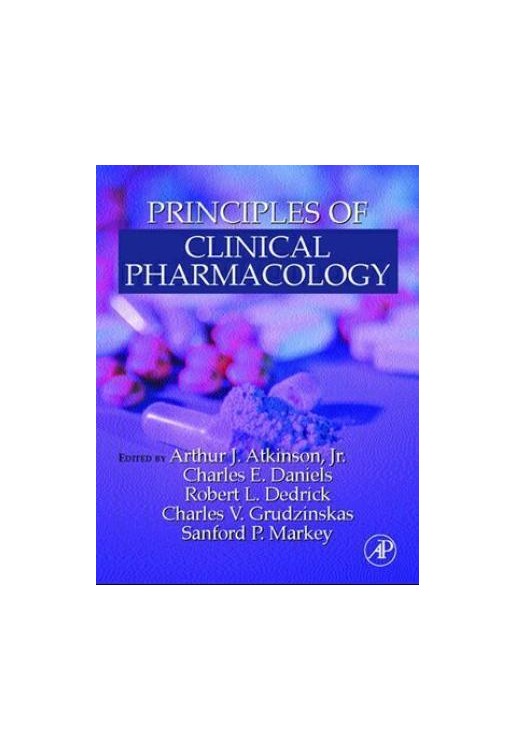The rate of introduction of new pharmaceutical products has increased rapidly over the past decade, and details learned about a particular drug become obsolete as it is replaced by newer agents. Principles of Clinical Pharmacology focuses on the fundamentals that underlie the clinical use and contemporary development of pharmaceuticals. The coverage of these principles in this book will be of particular benefit to individuals engaged either in the teaching or study of sound therapeutic technique or in the investigation of pharmacological agents. "...this book fulfills the long-felt need for an updated publication in Clinical Pharmacology."-INDIAN JOURNAL OF PHARMACOLOGY (2003)
"...this book is for the reader who wants a detailed in- depth understanding of clinical pharmacology."-E STREAMS (2003)
Introduction
PART 1: PHARMACOKINETICS:
Clinical pharmacokinetics.
Compartmental analysis of drug distribution.
Drug absorption and bioavailability.
Effects of renal disease on pharmacokinetics.
Kinetics of hemodialysis and hemofiltration.
Effects of liver disease on pharmacokinetics.
Noncompartmental vs. compartmental approaches to pharmacokinetic analysis.
Distributed models of drug kinetics.
Population pharmacokinetics.
PART 2: DRUG METABOLISM AND TRANSPORT:
Pathways of drug metabolism.
Chemical assay of drugs and drug metabolites.
Pharmacogenetics.
Drug interactions.
Biochemical mechanisms of drug toxicity.
Equilibrative and concentrative transport.
PART 3: ASSESSMENT OF DRUG EFFECTS:
Physiological and laboratory markers of drug effect.
Dose response and concentration response analysis.
Kinetics of pharmacologic effect.
Disease progression models.
PART 4: OPTIMIZING AND EVALUATING DRUG THERAPY:
Sex differences in pharmacokinetics and pharmacodynamics.
Drug therapy in pregnant and nursing women.
Drug therapy in neonates and pediatric patients.
Drug therapy in the elderly.
Clinical analysis of adverse drug reactions.
Quality assessment of drug therapy.
PART 5: DRUG DISCOVERY AND DEVELOPMENT:
Project management.
Drug discovery.
Pre-clinical development.
Animal scale up.
Phase I studies.
PK and PD considerations in the development of biotechnology products and large molecules.
Design of clinical development programs.
Role of the FDA in guiding drug development.
Appendix I: Table of Laplace Transforms
Appendix II: Answers to Study Problems


